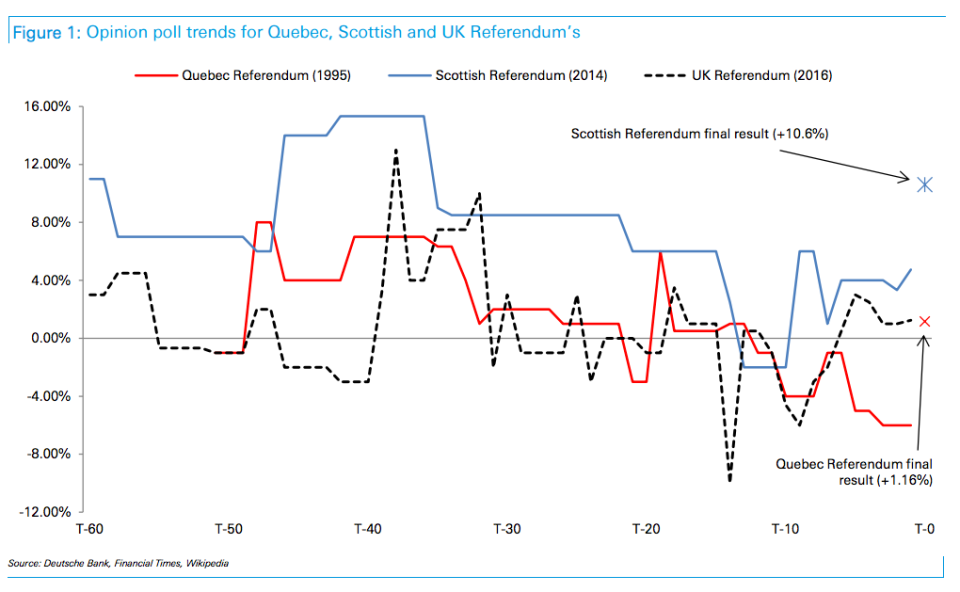This chart shows how influential the status quo is in national votes

Reuters
It can be hard to change.
This is especially true in a referendum, where fear of change takes hold in the voting booth and the status quo gets a boost.
This is one of the reasons why, despite past polls showing the UK's EU referendum being too close to call, betting markets are pricing in only a 25% chance of a leave vote.
Polling agencies reported swings between the Leave and Remain camps in the past few days. For instance, one TNS poll conducted online between 16 - 22 June, and released on Wednesday, puts Remain at 41% (+1), Leave: 43% (-4).
Meanwhile bookmaker Ladbrokes currently gives the Leave vote just a 24% chance of winning, while William Hill is similarly unconvinced, pegging a Brexit likelihood at only 25%. This is down from last week, when the likelihood of a Leave vote hovered around the 40% mark.
The swing to the status quo happened in other referendums on independence in Scotland and Quebec in Canada.
Deutsche Bank's Jim Reid said in a note on sent to clients on Thursday: "As we highlighted last week, there seemed to be either a late swing or error in polling that underestimated the support for the ‘remain’ movement in the Quebec/Scottish referendums."
This led to a stronger remain vote than had been forecast.
Here's the chart from Deutsche Bank:

Reuters
NOW WATCH: Everyday phrases that even smart people say incorrectly
See Also:
SEE ALSO: Here's what will happen on Friday if Britain votes to leave the EU

 Yahoo Finance
Yahoo Finance 
